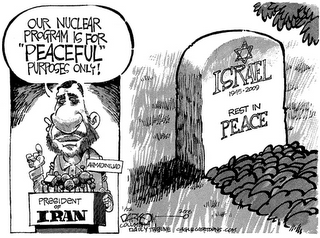To: Prime Minister of Israel, Ehud Olmert
Dear Prime Minister:
After the mishandling of the Second Lebanon War, the non-stop flow of contradicting statements on various State matters & the pending criminal investigation against you, we the Undersigned, from Israel and all parts of the concerned international community, call on you to resign your position as the Prime Minister of the State of Israel.
Before the start of the Second Lebanon War, you made a passionate speech in the Knesset where you laid out the goals for the war:
“On the Palestinian front, we will conduct a relentless battle until terror ceases, Gilad Shalit is returned home safely and the shooting of Qassam missiles stops … We will do everything and make every effort to bring them home … We will defend all of them, on behalf of all of them we will fight, and with all of them before our eyes – the civilians in the line of fire, the kidnapped fighters and their families – we will continue, without hesitating, without capitulating and without fear, until our goals are achieved.”
There is no need to even dissect the ineptitude your government showed during the war as not one of your stated goals was achieved. The bottom line is your leadership failed miserably. Three Israeli soldiers are still in enemy hands, and the citizens of Sderot and other southern cities are still being traumatized by daily Qassam rocket fire. The responsibility for the war’s failure is yours, as is the failure to push for the complete implementation of UN Security Council Resolution 1701. It has been over five months since the war ended, and the unconditional release of the abducted Israeli soldiers, as stated in the resolution, has yet to occur. As the leader of this country, that should be one of your main goals and yet you have not mentioned it directly at all while on any of your trips abroad. Have you forgotten which people you represent?.
Your leadership must also be called into question as you are continually making statements and then contradicting yourself shortly thereafter. Your unilateral ‘Realignment Plan’ was the major policy you wanted to push while in office, and yet only recently, you told the Chinese news agency Xinhua, "Under the existing circumstances, it would be more practical to achieve a two-state solution through negotiations rather than [unilateral] withdrawal." When Syria offered to discuss a peace treaty with Israel without any preconditions, you quickly stated, “Now isn’t the time to starts talks with Syria.” Yet a few days later, most newspapers came out with a story where you proclaimed, “I hope we will be able to arrive at dialogue with Syria.” A leader cannot be swayed back and forth. Doing that only shows how unsure you are of how to lead this country and what in fact is good for her.
On January 12th, Haaretz reported that the Justice Ministry was expected to announce the opening of a criminal investigation against you, mainly focusing on the state's sale of a controlling interest in Bank Leumi. Only five days later, Yaron Zelekha, the Finance Ministry's accountant general, commented that Israel is the most corrupt country in the West. This corruption, which has now become the ‘norm’ in the Israeli government, starts with you Mr. Olmert.
Besides the aforementioned failings, your actions are unbecoming of the Prime Minister of Israel. You are embarrassing the public, and lowering our faith in our country’s government bodies and the Israeli Defense Forces.
Please, for the sake of this wonderful country which you claim to love, step down. You were given a chance to push Israel forward after the difficulties of the disengagement, and you’ve failed miserably on every level. The future of this nation still glows brightly – please don’t dim it any further with your deficiencies as a leader.
Sincerely,
Your Name
Please pass this along - Make your voice heard.








